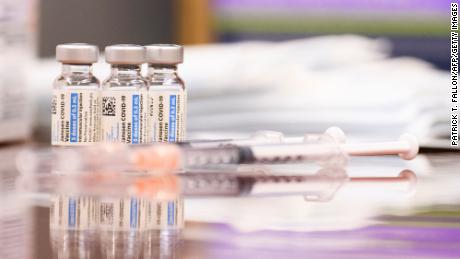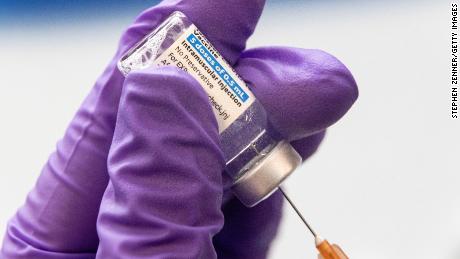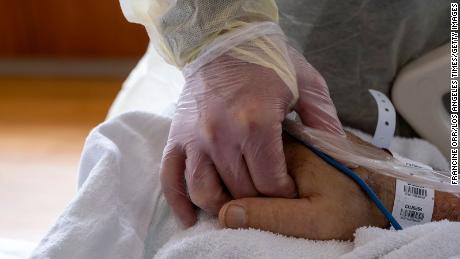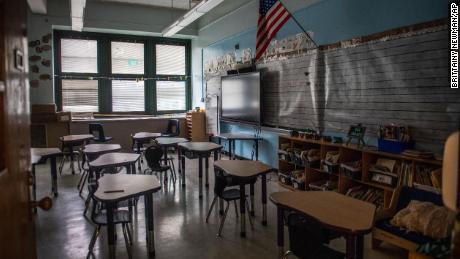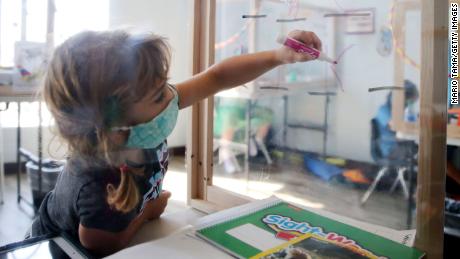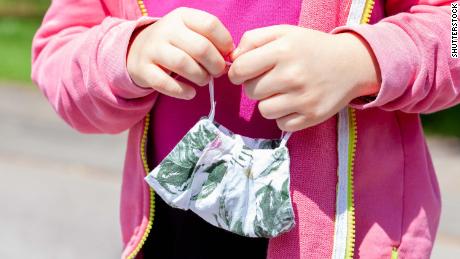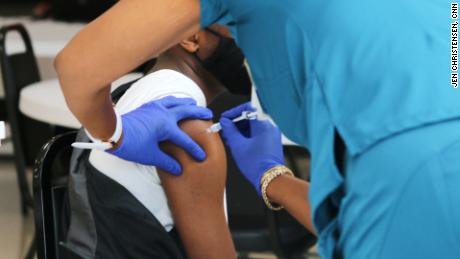(CNN)Adequate rates of vaccination can help prevent the rise of new mutations that could force people to get booster after booster dose of Covid-19 vaccine, the head of the US Centers for Disease Control and Prevention said Sunday.
The CDC and the US Food and Drug Administration recommended booster shots for many Americans last week to help preserve their immunity.
But that doesn't necessarily mean people will need to keep getting boosters. CDC Director Dr. Rochelle Walensky told CBS's "Face the Nation."
"Our goal right now is to stay ahead of the virus. We want to boost now so we don't end up in a vulnerable place," Walensky said.
"We will see if we can get the amount of transmission down in this country, and truly around the world, which we are also working to do, and then we are anticipating and hoping we will not have more mutations that will require more boosting in the future."
'Our hospitals are filled with unvaccinated people'
Covid-19 is killing so many people in Idaho that some funeral homes are running out of space to store the bodies.
"We are working nonstop. We're exhausted. We're frustrated," Ada County Coroner Dotti Owens said. "Funeral homes are out of storage. Our hospitals are out of storage."
The county bought a mass fatality trailer late last year to accommodate a larger number of bodies, but even that is filling up, Owens said.
"Now we're packing them in there," she said. "Our internal cooler is full."
What's happening in Idaho is tragic, but perhaps not surprising.
Idaho has one of the lowest vaccination rates in the US, with 41.3% of residents fully vaccinated as of Saturday, according CDC data.
Only two states had lower vaccinations rates: West Virginia (40.3%) and Wyoming (41%).
And the average rate of Covid-19 deaths was more than four times higher in the 10 least-vaccinated states compared to the 10 most-vaccinated states, a recent CNN analysis showed.
In Idaho, Covid-19 has killed an average of 20 people a day over the past week, according to CDC data published Saturday.
At Cloverdale Funeral Home in Ada County, "our refrigeration facility here at Cloverdale is substantial, and it's full," managing partner Steve Salove told CNN affiliate KIVI.
He said part of the problem is many victims' family members are also sick with Covid-19 -- meaning bodies have to be stored until they recover and can attend a funeral service.
About 90% of Idaho's ICU beds were occupied, with 58.6% taken up by Covid-19 patients, according to data from the US Department of Health and Human Services.
Alaska is calling for additional medical staff to help with Covid-19 cases.
The state is seeking 297 registered nurses, 114 nursing assistants and a variety of other technicians and therapists to help hospitals that are struggling with staffing and near capacity. The endeavor will likely cost the state about $1 million per day, which will be reimbursed by the federal government, officials said.
The new resources come as the state has authorized hospitals to enact crisis standards of care, allowing the facilities to ration resources when overwhelmed by patients.
The CDC director said she's worried about hospitals in some states running out of beds.
"And when you see that, you worry that people may not be able to come in and get the proper care if they have a motor vehicle accident or if they're having a heart attack," Walensky told CBS on Sunday.
"People who are not vaccinated are 10 times more likely to be in the hospital. Our hospitals are filled with unvaccinated people."
Some schools have to pause in-person learning
The Filer School District in Idaho closed Friday due to "excessive staff absences and the shortage of substitute teachers," district officials said in a Facebook post.
Students will not learn remotely during the break, which ends October 4.
The district's Covid-19 dashboard showed 11 school staff and 56 students have tested positive for Covid-19 since school began September 7.
A combination of absences among teachers, kitchen staff, custodians and other workers as well as a lack of substitute teachers is making it difficult for the district to operate, Schroeder explained.
"It's hard to say if the absences and shortages have been caused by Covid-19," FSD Superintendent Kelli Schroeder told CNN in an email. "There are several other staff members who are out for illness and other reasons."
Children typically don't get infected in schools where proper precautions are taken, the CDC director said.
"Our science has demonstrated that the disease generally comes in from the community, and when schools are practicing the proper mitigation and prevention strategies, it is not where the transmission is actually happening," Walensky told CBS.
The CDC has recommended mask wearing for students, teachers and visitors in schools from kindergarten through grade 12, along with improved ventilation, physical distancing and testing on a screening basis.
"We know how to keep them safe," Walensky said. "When we don't use the proper mitigation, they're more likely to have outbreaks."
The good news for kids: the CDC chief said she think it might be OK to go trick-or-treating this year.
"Oh, gosh, I certainly hope so. If you're able to be outdoors, absolutely. Limit crowds. I wouldn't necessarily go to a crowded Halloween party," Walensky told CBS.
"I think we should be able to let our kids go trick-or-treating in small groups, and I hope that we can do that this year."
GOP governor: 'Vaccinations remain our ticket out of this pandemic'
Ohio, Gov. Mike DeWine recently announced the "Vax to School" program, which residents ages 12 and 25 may enter with proof of vaccination.
The program will give five scholarships worth $100,000 and 50 scholarships worth $10,000. All scholarship money can be used toward any type of education or job training the winner chooses.
DeWine noted an "alarming trend" of Covid-19 cases in young Ohioans, including 42,000 cases in children between the ages 5 and 17 since school started August 15.
"Vaccinations remain our ticket out of this pandemic," DeWine said. "Vaccinations are the way that we stop our hospitals from being overcrowded."
Correction: An earlier version of this story understated the value of Ohio's "Vax to School" program. Prizes will include 50 scholarships worth $10,000 each and five $100,000 scholarships.

